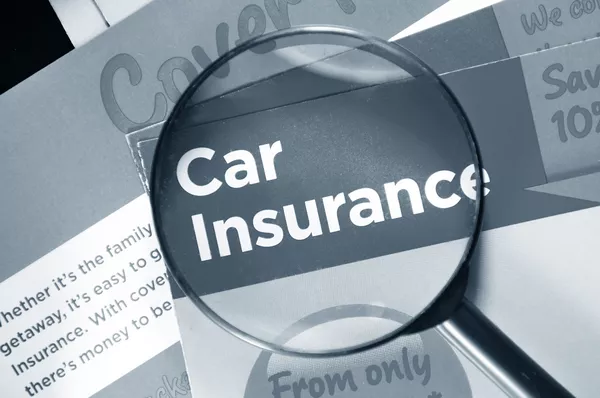When dealing with car insurance, terms like “insurance loss” can often be confusing. For car owners and drivers, understanding what insurance loss means, how it impacts your policy, and the financial implications of a loss is crucial. Whether you’re involved in an accident, experience theft, or face other incidents that lead to damage or total loss of your vehicle, knowing how insurance handles these situations can help you make informed decisions. This article will provide a comprehensive overview of insurance loss concerning cars, exploring what it means, how it is calculated, and its implications for you as a policyholder.
What Does Insurance Loss Mean?
Insurance loss refers to the financial impact experienced by an insured individual or entity due to a covered event. In the context of car insurance, this typically involves situations where your vehicle is damaged or lost and you file a claim with your insurance provider for compensation.
Types of Insurance Losses
Partial Loss: This occurs when your vehicle is damaged but can still be repaired. For instance, if your car is involved in a minor collision, the insurance will cover the costs of repairs up to a certain limit, minus your deductible.
Total Loss: A vehicle is deemed a total loss when the cost of repairs exceeds the car’s actual cash value (ACV). Insurance companies typically consider a car a total loss if the repair costs are 70-80% of the car’s ACV.
Stolen Vehicle: If your vehicle is stolen and not recovered, this situation constitutes an insurance loss. The insurance company will compensate you based on the car’s ACV at the time of theft.
Key Terms Related to Insurance Loss
Actual Cash Value (ACV): The market value of your car at the time of loss, considering depreciation. It’s calculated as the replacement cost minus depreciation.
Deductible: The amount you are responsible for paying out of pocket before your insurance coverage kicks in. For example, if your car repair costs $2,000 and you have a $500 deductible, your insurance will pay $1,500.
Replacement Cost: The cost to replace your vehicle with a similar one without considering depreciation. This is often relevant for newer vehicles.
How Insurance Loss is Calculated
The calculation of insurance loss can be complex and involves various factors that insurance companies consider when determining payouts. Here’s a breakdown of how it works:
Assessment of Damage
When you file a claim after an incident, the insurance company will send an adjuster to assess the damage. This involves:
Visual Inspection: The adjuster will inspect the vehicle for visible damages.
Estimate of Repair Costs: They will estimate the costs of repairs based on market rates and available resources.
Determining Actual Cash Value (ACV)
If your vehicle is deemed a total loss, the insurance company will determine its ACV. Factors influencing this include:
Make and Model: The brand and type of your vehicle significantly affect its market value.
Age and Condition: Older vehicles generally have lower ACV due to depreciation.
Mileage: Higher mileage can decrease the value of the vehicle.
Market Trends: The local market demand for your specific vehicle can influence its ACV.
See Also: Knowing Car Insurance for Leased Vehicles: A Detailed Guide
Subtracting the Deductible
Once the ACV is determined, the deductible is subtracted from the payout amount. For example, if your car’s ACV is $10,000 and you have a $1,000 deductible, the insurance company will pay you $9,000.
Implications of Insurance Loss on Your Policy
Understanding the implications of an insurance loss on your policy is essential for managing your finances and future insurance needs. Here are some key aspects to consider:
Impact on Premiums
Filing a claim due to an insurance loss can lead to an increase in your insurance premiums. Insurance companies may view claims as a sign of higher risk, leading to higher rates upon policy renewal. The extent of the increase can depend on:
Type of Claim: Total loss claims may impact your premiums more than minor repair claims.
Your Claims History: A history of multiple claims can result in a higher premium increase.
Insurance Provider Policies: Each company has its criteria for determining how claims affect premiums.
Potential for Policy Non-Renewal
In some cases, if you file multiple claims within a short period, your insurance company might choose not to renew your policy. This is particularly true if they consider you a high-risk customer.
Coverage Limitations
When insuring a vehicle, it’s important to understand the limitations of your policy. Depending on your coverage type, certain events may not be covered. For example, if you have liability-only insurance, theft or damage to your vehicle may not be covered.
Steps to Take After an Insurance Loss
Experiencing an insurance loss can be overwhelming, but knowing the steps to take can help you navigate the process smoothly:
Notify Your Insurance Company
As soon as an incident occurs, notify your insurance company to start the claims process. Provide details about the accident or loss and follow their instructions.
Document the Incident
Gather all relevant documentation, including:
Photos: Take pictures of the damage, accident scene, and any other pertinent details.
Police Reports: If applicable, obtain a copy of the police report.
Witness Statements: Collect statements from witnesses, if available.
Follow Up with the Adjuster
Stay in communication with the insurance adjuster throughout the claims process. They may need additional information or documentation, so be prompt in your responses.
Review Your Policy
Understand your coverage limits, deductible, and any exclusions in your policy. This will help set your expectations regarding the claims payout.
Consider Professional Help
If you encounter difficulties during the claims process or dispute the insurance company’s assessment, consider hiring a public adjuster or attorney specializing in insurance claims. They can advocate on your behalf and ensure you receive a fair settlement.
Conclusion
Understanding what insurance loss means for your vehicle is essential for every car owner. Whether facing a partial or total loss, the implications for your finances and insurance premiums can be significant. By familiarizing yourself with the terminology, processes, and responsibilities associated with insurance loss, you can navigate the complexities of car insurance with greater confidence. Remember to document everything, stay in touch with your insurance provider, and know your rights as a policyholder. Being informed will help you make the best decisions during challenging situations, ensuring you protect your investment and manage your insurance effectively.
You Might Be Interested In






















